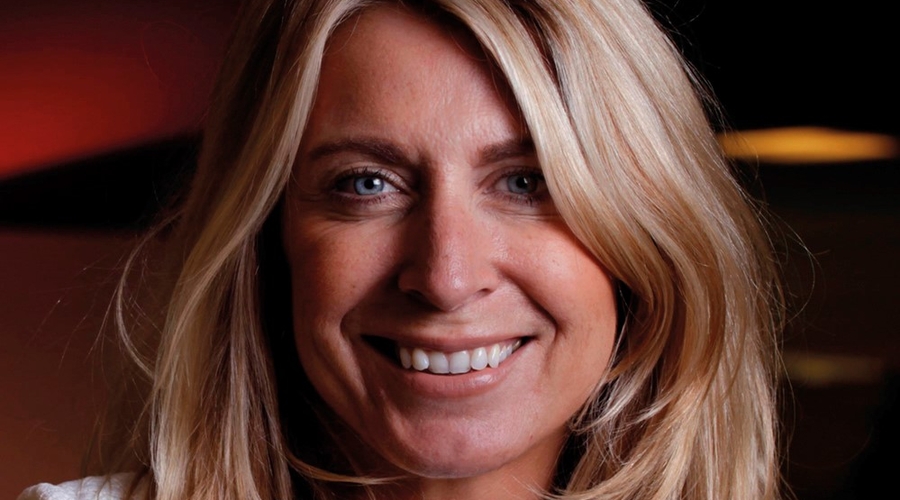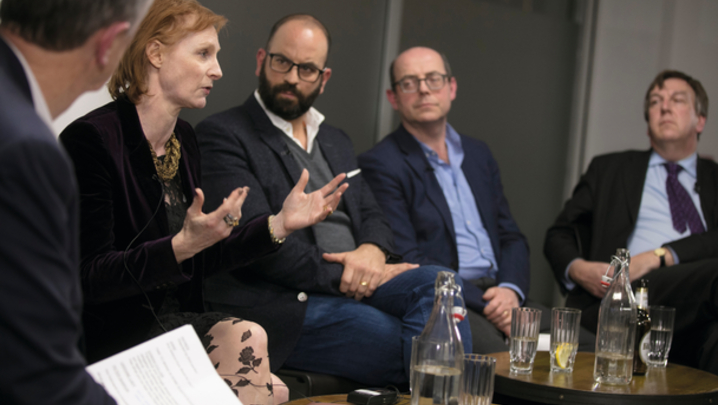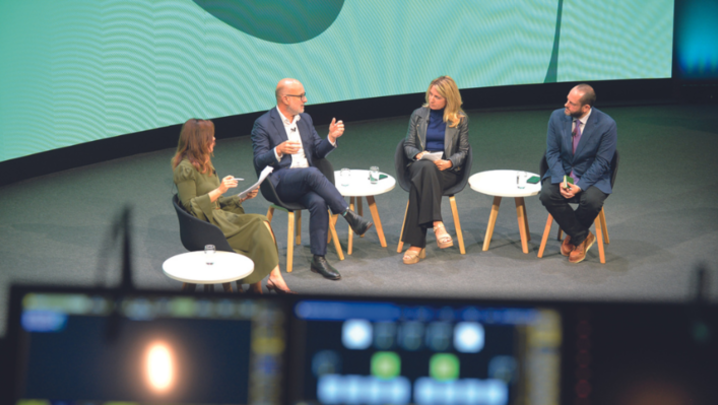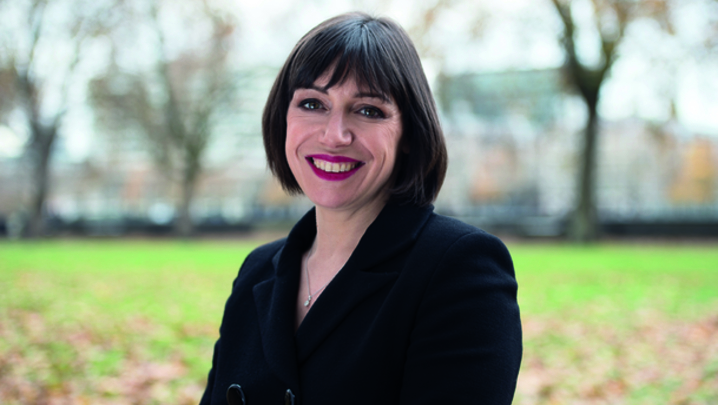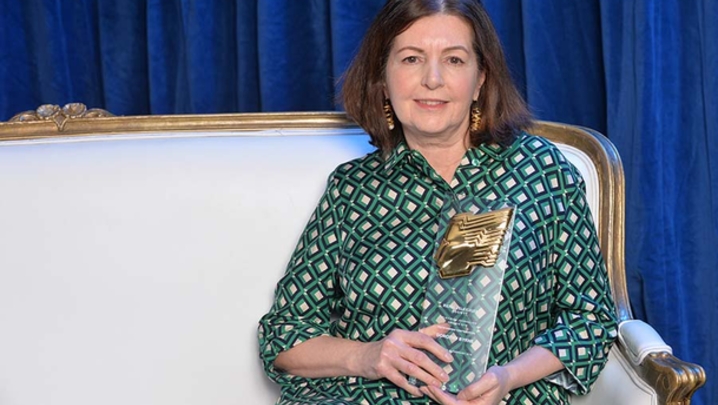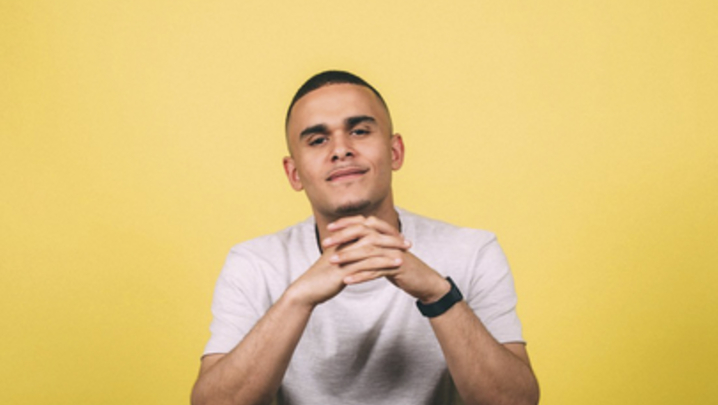Andrew Billen asks Deborah Turness, the first female editor of a British TV news show, about her latest canvas for modernisation, Euronews.
Deborah Turness, the former editor of ITV News, ex-President of NBC News and now boss of Euronews, admits that there are parallels in her working and domestic lives. She is, she says, a serial renovator. She bought a place in Shepherd’s Bush and turned it into a family home just before her first daughter was born, and then did the same thing in Chiswick, just before her second.
When she moved to New York, she bought a 19th-century “wreck” around the corner from where the family was renting, took out many walls and the staircase, redid the bathrooms, and made the opened-up spaces “magical”.
And then there is her life as a reinventor in television news, making the newscaster deskless for 5 News, pushing anchors in front of a vast news wall at ITV, restoring scandal-prone NBC News to its primacy in the US, and now, as she puts it, making a start-up out of the Euronews heritage brand.
“What I love is taking things that have real legacy, heritage and magical qualities, keeping the best of what they are, but modernising them,” she says over coffee at the Electric House club in Notting Hill. “Yes, there are parallels.”
Euronews was no wreck but, from Britain, spoilt for news channels, it looked like an oddity. Formed by a collective effort of state broadcasters alarmed that CNN had cornered the Gulf war, it was a continent-wide newsreel, identical in each of its markets, save for the dubbed-on commentary.
A few years ago, its investors decided to create instead 12 separate video and audio channels, each with its own content. Comcast-owned NBC in the US, looking to expand east, suddenly took an interest and, in 2017, acquired a 25% stake.
Turness, ending a successful but tumultuous spell at NBC News in New York, became president of NBC News International and presided over a relaunch.
Naturally, one of the first things she oversaw was a spanking new studio at its Lyons HQ, from where anchors are now, at last, seen on screen.
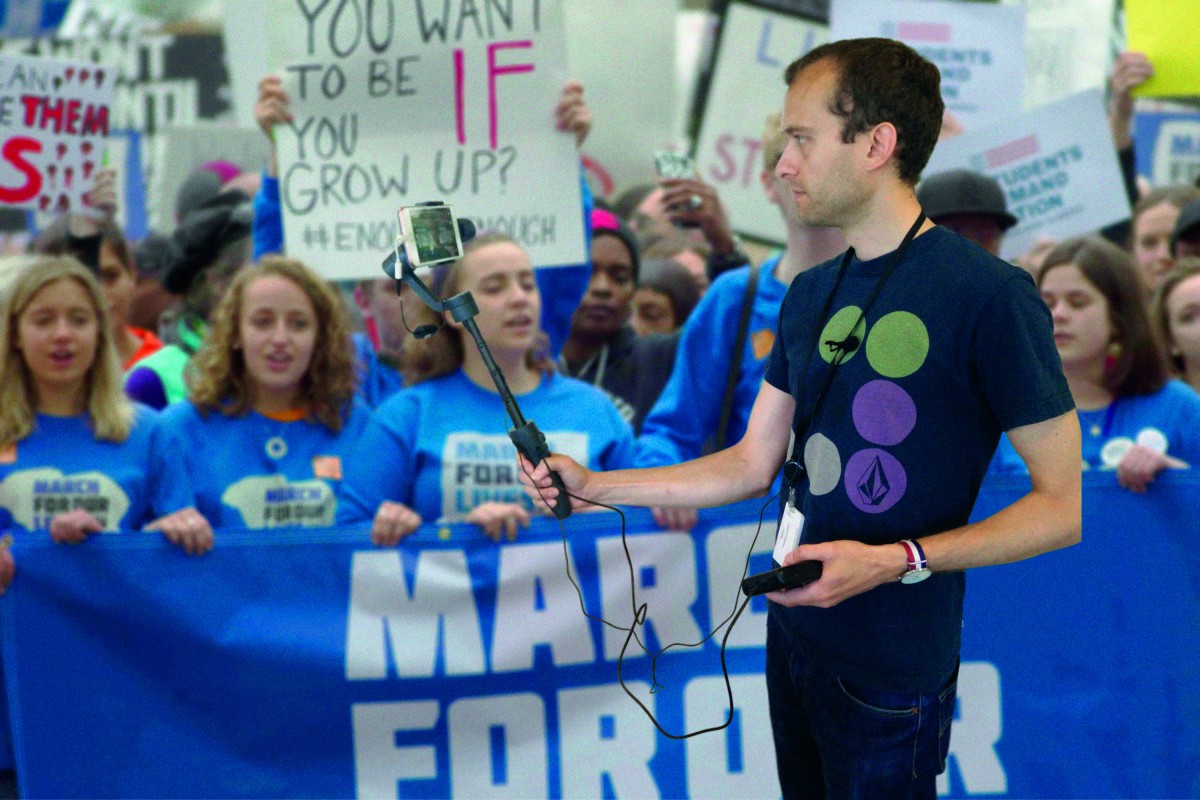
A “cube” contains a shirt-hanging-from-trousers young journalist who not only shows us the latest social media but calls out its lies – Turness has on her phone an impressive skewering of a political ad mispresenting the liberal Belgian MEP Guy Verhofstadt.
In Brussels and, due to the vagaries of European politics, one week out of four in Strasbourg – an additional set provides a cockpit for MEPs to debate matters such as, well, Brexit.
Yet, it is not the vivid-green HQ that make Euronews unlike anything else on television – though now, as was not necessarily the case previously, it is in a good way.
Rather, it is the fact that its reporters are not accompanied by camera operators but by iPhones accessorised with selfie sticks, Osmo image stabilisers and arsenals of chargers.
“For journalists coming into the business now, it’s liberating,” says Turness.
“They have a different style of journalism and they’re trying to do something different. It gets you closer to the people that you’re interviewing. It gives a more visceral representation of what is happening in those places.”
She points to two instances. One is Euronews’s coverage of the December Strasbourg market attack. Admittedly, it was “lucky” that its Raw Politics team was in town with the European Parliament, but the courage of its reporters reporting live from the streets cannot be disputed.
The other is the enterprise of its youthful “star reporter” Anelise Borges, who took her iPhone (and drone) aboard the Aquarius, the migrant rescue vessel turned away by Italy last summer.
“She was able to win the trust of the refugees and the crew on board. They let her in. She filmed their children.
“There’s the story of one woman with her three little girls: they crossed seven countries in Africa – all these incredibly intense stories from people who are very shy and normally wouldn’t open up, and would not have opened up with a great big camera crew.
“Anelise was live every day for 10 days on the ship and then, when she came off, I brought in a couple of guys who normally make Panorama for the BBC. They and she made a one-hour documentary that has already won two awards.”
Euronews is, undoubtedly, an exciting place to work. A recent survey showed that its new format is winning mass approval from its viewers.
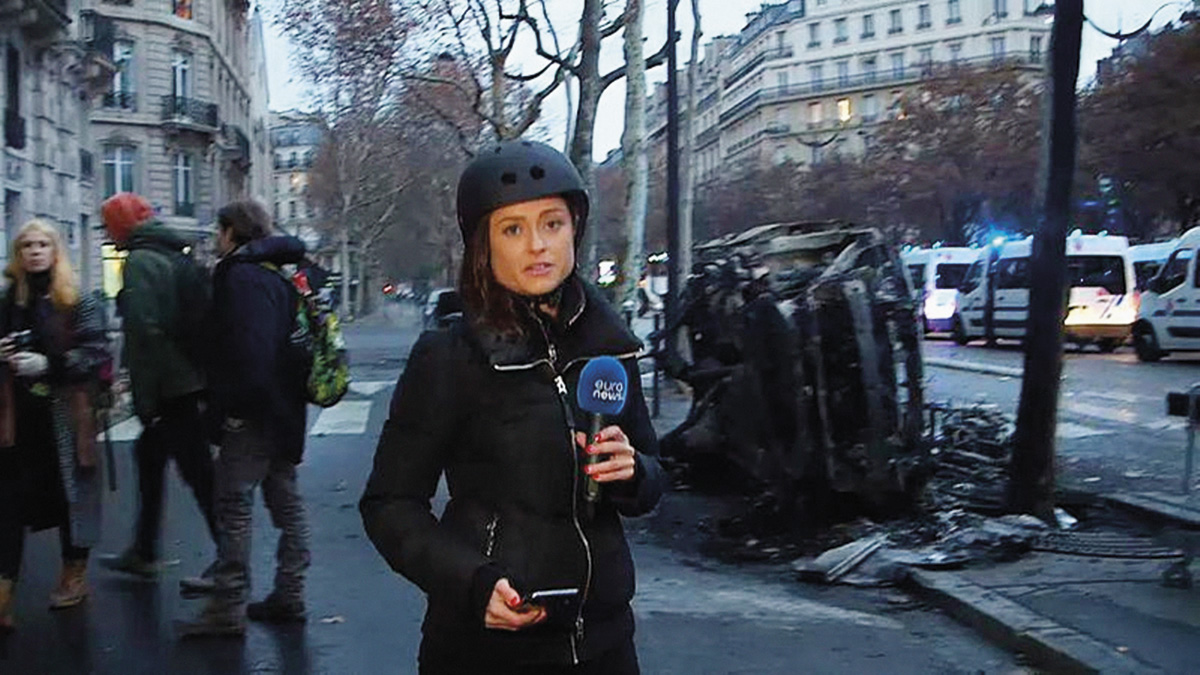
Yet, it seems small beer for a woman who may be Britain’s most successful TV news executive ever and has run mighty NBC News herself. I ask if the rumours in the trade press that she was “sidelined” are right.
“No, not at all. I’d gone to NBC News to do a job. When I got there, things weren’t great. It was post quite a difficult time for the organisation.
The Today show was number two, Meet the Press was going to number three, NBC Nightly News was starting to be unstable."
I was brought in as someone to look and see what needed to be done to put things right. And everything was number one before I left. I was extremely happy and proud of what I had achieved. I’d always seen it as a project.”
“I’m here to define a strategy, to work in collaboration with people, I’m very, very focused and I don’t have time for any of that.”
There were also personal reasons, regarding her husband’s first family, for returning. Even so, life in Bronxville NY and commuting to NBC’s Manhattan studios at
Thirty Rock, sounds pretty entrancing.
The downside, I guess, was the filthy office politics as, first, she removed David Gregory as moderator of Meet the Press, and then Brian Williams, who, caught exaggerating his heroics in Iraq, was extracted from the anchor’s chair of NBC Nightly News.
“To be honest, you can ask anybody who worked with me, I don’t engage in it [office politics]. I tell everybody who works with me I’m here to do a job. Let’s work out what the goals are, the priorities.
“I’m here to define a strategy, to work in collaboration with people, I’m very, very focused and I don’t have time for any of that.”
But removing star presenters cannot have been fun? “I always think that, whatever you have to do, do it with kindness and compassion and you can look at yourself in the mirror.”
On the alleged culture of sexual intimidation at NBC, Turness turns rather corporate. It is not just, I point out, Matt Lauer, the “nice guy” who was forced out of Today after horrifying stories about his treatment of women.
Even the legendary ex-anchor Tom Brokaw was accused of a (comparatively minor) impropriety. “He is a hero and that’s it. It’s gone away. It didn’t stick.”
But did she see abuse of power during her tenure? “Absolutely not. And, indeed, the NBC News investigation into it found that none of that had been reported into HR or management.”
But that’s the problem: a culture of silence. “Indeed, and there’s a whole cultural review going on and a very productive and inclusive movement in terms of encouraging people to speak.
“Look,” she says, “NBC News was the first news organisation to put a woman as president of news. That was me. I had a female boss at the time. Way more than half of my direct reportees were female.
“So, it was, and it continues to be, a very, very good place for women to work, as is Euronews. Euronews has got a woman head of ad sales, me, and a woman as chief content officer.”
Things were a different when she began at ITN in the late 1980s. She recalls “minding the desk” when the men went to the pub after the 5:45pm bulletin.
Although there were instances of powerful women at ITN – such as Diana Edwards-Jones – most were at the programme assistant level.
“But I felt that if you were a young woman and you demonstrated that you could actually deliver, you could survive and thrive in the environment."
“But I felt that if you were a young woman and you demonstrated that you could actually deliver, you could survive and thrive in the environment. I felt, actually, that you were even more noticed because you were a woman.”

On the road, was she ever propositioned by a colleague? “No one has ever asked me this before. I think in any environment at that time, any young woman, particularly in a role where you’re travelling with teams of men, there were advances made, yes.
Were they rebuffed if I wasn’t interested? Yes, absolutely. And was that respected? Yes, always.”
Brought up in Hertfordshire and expelled by nuns from St Francis’s College for smuggling boys into a barn dance, Turness was never a pushover. She now thinks that relocating, aged 12, to the local comprehensive further toughened her up.
Journalism soon called her. She started a schools page in the local paper and, at 15, was a music reviewer. At the University of Surrey, she studied French and English. Her postgraduate studies took her to Bordeaux’s school of journalism.
Speaking French is a huge asset in her current job, but it was her flair that most impressed Jon Snow, then ITN’s diplomatic editor, back in 1988, when she was his freelance producer in Paris.
She quickly concluded that, while she might make an average correspondent herself, she could be an exceptional producer.
After spells as deputy editor and then editor of 5 News (the first time that ITN removed a newscaster from their desk), and an unhappier few months editing Channel 4’s breakfast show RI:SE, she rejoined ITV News as deputy editor.
In 2004, she was promoted to editor there, becoming the first female editor within British network news.
It was a remarkable achievement, made the greater by her decision, not long after, to have children, having met the man who would become her second husband, the former ITN producer John Toker.
I like to think that I played a small part in this decision.
In an interview that she gave in 2006, she said that, while her job was “probably” not compatible with family life, she had been encouraged by an interview with the actor Geena Davis, who had twins at 48.
I had written the piece. She smiles when I remind her. In any case, in 2009, aged 42, she had the first of two daughters.
Her tenure as head of ITV News was marked by scoops, including footage of the arrest of the 2005 London bombers, but also by a complete overhaul of its studio presentation in favour of a vast news wall.
This was the “theatre of news” era, and it did not last for ever.
“Theatre of news was about bringing the power and the drama of video into the news presentation environment. The previous set had been a teak wooden desk.
“If you’re going to make changes, there is a very American concept of ‘go big or go home’. Really do this, really invest in it, really own it, really believe in it"
“If you’re going to make changes, there is a very American concept of ‘go big or go home’. Really do this, really invest in it, really own it, really believe in it. And we did. And I am very, very proud of it.
Did we autocorrect afterwards a little bit and come back to the middle somewhere? Yes, but you still see ripples of that everywhere.”
Nevertheless, her new Euronews may prove even more influential.
“We are in an era where mainstream news is fighting for its life, where we have to fight for trust. I think these issues of how we tell our stories and how we present our stories are now fundamental and existential.”
So news must show its workings, as maths teachers say? “Yes, because, otherwise, why would you just trust it? I think we’re in a post-trust world.”
“Our goal is to make NBC News a very impactful, influential, global news brand.”
We may not quite get this in Britain, but Euronews is a vast theatre of news. Deborah Turness, television news’s greatest renovator, not to say greatest show-woman, is transforming it.
A life of twists and Turness
Deborah Turness, President, NBC News International
Born 4 March 1967; brought up in Hertfordshire
Father Andrew Turness, self-made businessman, died three years ago
Mother Caroline, helped launch her husband’s business
Married to John Toker, Cabinet Office comms director and former ITN producer (her first husband was journalist and ex-Clash roadie Damien Steward); two children: Fleur and Belle
Education St Francis’s College and Knights Templar School, Baldock; University of Surrey (French and English), University of Bordeaux (journalism)
1988 Freelance producer for ITN in Paris
1991 Producer, ITN north of England
1993 ITN Washington bureau
2000 Deputy editor, then editor, of 5 News
2002 Editor, Channel 4’s RI:SE
2002 Deputy editor, ITV News
2004 First female editor of ITV News (which wins three consecutive Baftas and an International Emmy during her tenure)
2013 President, NBC News
2017 Moves back to Europe to relaunch Euronews, based in London and Lyons
Awards Women in Film and Television News and Factual Award 2009; RTS Television Journalism Awards 2014 Judges’ Award
Hours of sleep needed ‘I’m not Margaret Thatcher, but I can get by on five or six.’
Watching The Affair, Cold Feet, The Crown

